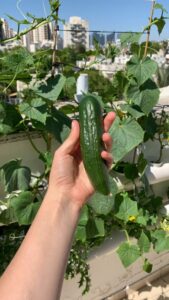If you’re like most people, you probably think that all strawberries are created equal. But did you know there is a big difference between hydroponic and traditional strawberries?
Hydroponically grown strawberries are gaining popularity and for a good reason! They are healthier, tastier, and more sustainable than traditional strawberries. Keep reading to learn more about the benefits of hydroponic strawberries!
What is hydroponically grown strawberries?
Hydroponically grown plants, strawberries included, are plants that grow in water and not in the ground. In greek: Hydro – water Ponos – labor
There is a debate about where it was started and by who. Some say it dates back to the 17th century, others will say it started about 100 years ago. Some – in the ’40s. They all agree that the breakthrough happened when people discovered that plants don’t need the ground per se, they need the nutrients in it. So once you replace the soil with nutrient-rich water, you can grow most of the plants hydroponically.
Do hydroponic strawberries taste different from regular ones?
Yes, hydroponic strawberries tend to be sweeter and more flavorful than traditional strawberries. This is because they are grown in nutrient-rich water instead of soil, allowing the plants to thrive without the presence of contaminants in the soil. Also, the hydroponic growth environment is more monitored and controlled than most regular soil strawberries, and when you monitor your food growth – more things can go right.
Are hydroponically grown strawberries organic?
Most hydroponic strawberries are not organic. For a fruit to be considered organic, farmers must use only approved methods to control pests and be able to verify that they have not used prohibited substances. Since hydroponic strawberries are grown in a controlled environment without the presence of natural soil contaminants, they do not qualify as organic.
Strawberries can be both organic and hydroponic, but this is not their default.
Benefits of hydroponic strawberries
Despite this limitation, hydroponic strawberries still offer many benefits over traditionally grown strawberries. They are more nutrient-dense and flavorful than traditional varieties, making them a healthier and tastier choice. And because they are grown without soil or pesticides, hydroponic strawberries are also more sustainable and environmentally friendly.
The nutrients found in strawberries are key to their many health benefits. These include antioxidants like vitamin C, which can help protect against oxidative stress and reduce the risk of heart disease, stroke, and cancer. They also contain high levels of folate, a B vitamin that is important for heart health and cognitive function, as well as fiber for better digestion and blood sugar control.
Are hydroponically grown strawberries safe to eat?
Yes, hydroponic strawberries are safe to eat. While they may not be organic or grown using traditional methods, they are carefully monitored and tested by farmers to ensure that they are free of any harmful chemicals or contaminants. You can read here more about the safety of eating hydroponic fruits and vegetables.
How to wash them?
To clean your hydroponic strawberries, simply rinse them under cool water and gently scrub them with a soft vegetable brush if needed. Make sure to remove any excess dirt or debris from the berries before eating. And because hydroponic strawberries are more fragile than traditional varieties, it’s important to handle them gently when washing and preparing for consumption.
What is the difference between regular strawberries and hydroponic strawberries?
Growth Environment
The main difference between regular and hydroponic strawberries is how they are grown. Regular strawberries are grown in the ground, while hydroponic strawberries are grown in nutrient-rich water rather than soil. This has a number of benefits, including increased flavor and nutritional content, as well as being more sustainable and environmentally friendly.
Difference in taste
Hydroponic strawberries are also known to be sweeter and more flavorful than traditional strawberries, due to the monitored environment and the absence of soil-based contaminants that can impact the taste.
Organic
However, hydroponic strawberries are not organic and may be more prone to bruising, so it is important to handle them delicately when washing and preparing them for consumption.
With proper care, hydroponic strawberries are a delicious and nutritious alternative to traditional varieties.
Sustainability
Hydroponic strawberries are also more sustainable and environmentally friendly than traditional varieties. They require less water and land to grow, and are usually grown without the use of chemicals or pesticides.
Conclusion:
If you are looking for a healthy and flavorful alternative to traditional strawberries, hydroponic strawberries may be the right choice for you. While they are not always organic or grown using traditional methods, these juicy berries offer many nutritional benefits, including antioxidants and fiber. And with proper care, they can also be more sustainable and environmentally friendly than traditional varieties. So if you are looking for a sweet and nutritious snack, consider giving hydroponic strawberries a try today!
Yes, they are perfectly safe to eat, and they are very tasty too.
The main differences are the growth environment, taste slightly different (hydroponic strawberries are usually sweeter).






